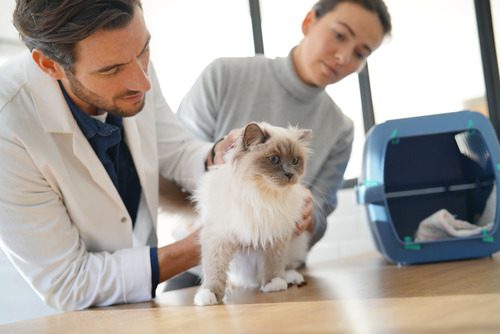What To Do If Your Cat is Seizing
Witnessing your cat in the midst of a seizure can be a deeply unsettling experience. Seizures in cats are symptoms of neurological disorders and can vary widely in frequency, cause, and intensity. While the immediate response might be panic, understanding what to do when your cat is seizing can help you manage the situation more effectively until you can get professional help. This blog aims to guide you through the steps to take during and after a seizure, emphasizing the importance of veterinary care for your cat’s health and safety. If your pet experiences a seizure, call Central Broward Animal Hospital in Fort Lauderdale, Florida at (954) 792-6223 for immediate advice and assistance.

Recognizing the Signs of a Seizure in Cats
A seizure may be difficult to recognize, especially if it is subtle. Common signs include:
- Sudden uncontrolled movements
- Stiffness
- Twitching
- Loss of consciousness
- Involuntary urination or defecation
- Vocalizations such as howling or meowing loudly
- Seeming disoriented or pacing before or after seizure
Recognizing these signs early can be key in managing your cat’s health effectively.
Immediate Steps During a Cat Seizure
When your cat is seizing, it is critical to remain calm and ensure their safety. Clear the area of any objects that could harm them, such as sharp items or furniture edges. Do not attempt to restrain your cat, but do place something soft under their head to prevent injury. Keep your hands away from their mouth, as cats are unlikely to swallow their tongue but may accidentally bite you.
Monitoring and Documenting the Seizure
After the seizure has passed, your cat will likely be disoriented and possibly scared. Offer them a quiet, dark place to rest as they recover. During this time, it’s important to monitor their behavior and note how long the seizure lasted, as this information will be crucial for your vet. Ensure you document any repeated episodes, noting the time, duration, and any possible triggers.
Why Immediate Veterinary Care Is Essential
If your cat is seizing, prompt veterinary attention is crucial to help determine the cause and appropriate treatment. Seizures can be caused by various conditions, including toxins, brain tumors, epilepsy, or metabolic issues. Call Central Broward Animal Hospital immediately at (954) 792-6223 to discuss the symptoms and next steps. Our veterinary team can guide you through stabilizing your cat’s condition and prepare for your arrival.
Long-Term Management of Cat Seizures
Managing a cat with frequent seizures often involves medication to reduce the occurrence and severity of the seizures. Your vet may recommend diagnostic tests such as blood work or an MRI to identify the underlying cause. Regular follow-ups will ensure that your cat’s treatment plan is effective and adjusted as needed.
Importance of Professional Diagnosis and Treatment
A correct diagnosis by a vet is essential to treat seizures effectively, as the wrong treatment can lead to complications or worsening of your cat’s health. Trust the expertise of your vet to navigate through these medical challenges.
Schedule an Appointment at Central Broward Animal Hospital
Caring for a cat with seizures can be challenging, but with the right knowledge and support, you can help manage your pet’s condition. Remember, if your cat is seizing, the best course of action is to ensure their immediate safety, monitor their health post-seizure, and contact Central Broward Animal Hospital at (954) 792-6223 for expert veterinary care. Your prompt response can make a significant difference in your cat’s well-being and quality of life.
